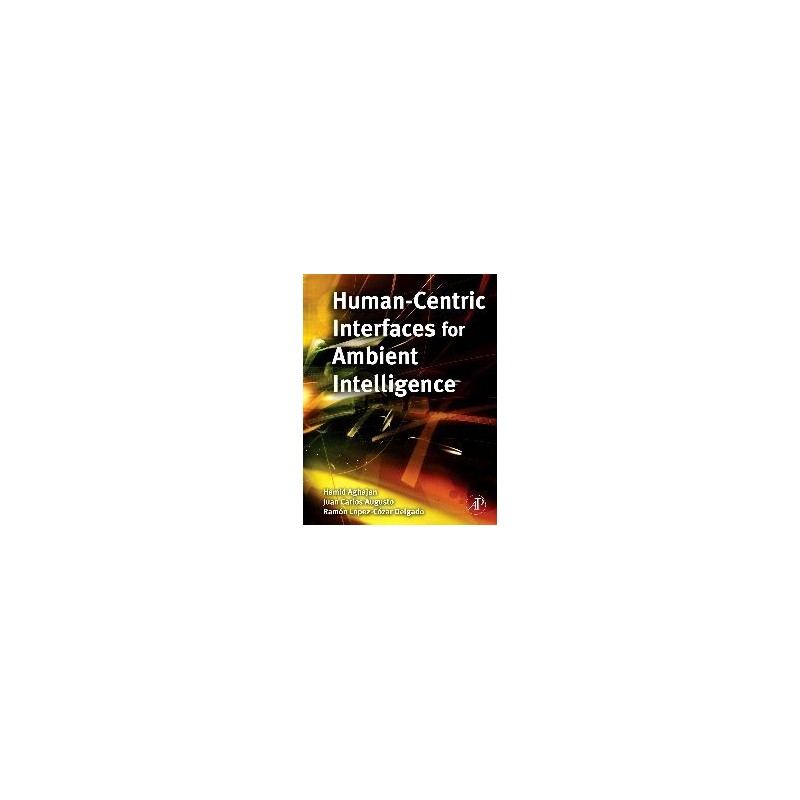- Obecnie brak na stanie



To create truly effective human-centric ambient intelligence systems both engineering and computing methods are needed. This is the first book to bridge data processing and intelligent reasoning methods for the creation of human-centered ambient intelligence systems. Interdisciplinary in nature, the book covers topics such as multi-modal interfaces, human-computer interaction, smart environments and pervasive computing, addressing principles, paradigms, methods and applications.
This book will be an ideal reference for university researchers, R&D engineers, computer engineers, and graduate students working in signal, speech and video processing, multi-modal interfaces, human-computer interaction and applications of ambient intelligence.
Hamid Aghajan is a Professor of Electrical Engineering (consulting) at Stanford University, USA. His research is on user-centric vision applications in smart homes, assisted living / well being, smart meetings, and avatar-based social interactions. He is Editor-in-Chief of "Journal of Ambient Intelligence and Smart Environments", has chaired ACM/IEEE ICDSC 2008, and organized workshops/sessions/tutorials at ECCV, ACM MM, FG, ECAI, ICASSP, CVPR.
Juan Carlos Augusto is a Lecturer at the University of Ulster, UK. He is conducting research on Smart Homes and Classrooms. He has given tutorials at IJCAI'07 and AAAI'08. He is Editor-in-Chief of the Book Series on "Ambient Intelligence and Smart Environments" and the "Journal of Ambient Intelligence and Smart Environments". He has co-Chaired ICOST'06, AITAmI'06/07/08, and is Workshops Chair for IE'09.
Ramón López-Cózar Delgado is a Professor at the Faculty of Computer Science and Telecommunications of the University of Granada, Spain. His research interests include speech recognition and understanding, dialogue management and Ambient Intelligence. He is a member of ISCA (International Speech Communication Association), SEPLN (Spanish Society on Natural Language Processing) and AIPO (Spanish Society on HCI).
Preface; Face to face collaborative interfaces; Computer vision interfaces for interactive art; Ubiquitous gaze: Using gaze at the interface; Exploiting natural language generation in scene interpretation; The language of action: A new tool for human-centric interfaces; Robust speech recognition under noisy ambient conditions; Speaker recognition in smart environments; Machine learning approaches to spoken language understanding; The role of spoken dialogue in user-environment interaction; Speech synthesis in ambient intelligence environments; Tangible interfaces for ambient augmented reality applications; Physical browsing and selection: Easy interaction with ambient services; Non-symbolic gestural interaction for ambient intelligence; Evaluation of multimodal interfaces for ambient intelligence; New frontiers in machine learning for predictive user modeling; Games and entertainment in ambient intelligence environments; Natural and implicit information seeking cues in responsive technology; Interaction in intelligent environments; Deploying context-aware home health technology: Human-centric challenges; Epilogue: Applications outlook
Brak towaru
Brak towaru
Brak towaru
Brak towaru
Brak towaru
Brak towaru
Brak towaru
Brak towaru
Brak towaru
Brak towaru
Brak towaru
Brak towaru
Brak towaru
Brak towaru
Brak towaru
Brak towaru

